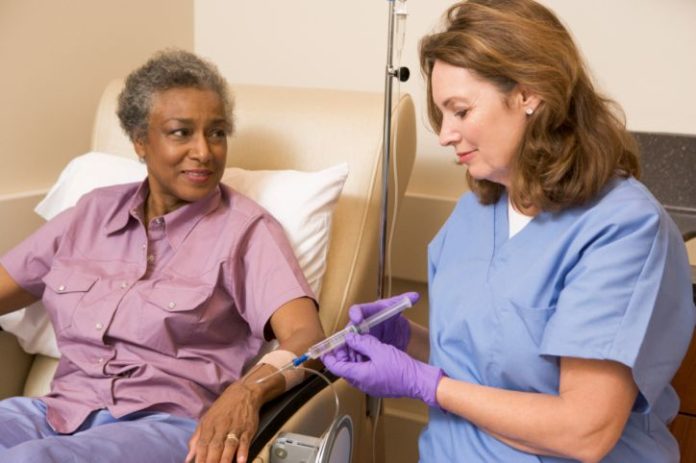Relatives of family members diagnosed with cancer are still at risk of the disease even if the diagnosis came at an older age.
It is known that early onset cancer cases carry more hereditary risk than late onset cases, but little is known about whether any familial component exists in cancer at a very old age.
Researchers from the German Cancer Research Centre and Lund University in Sweden therefore took data from the Swedish Family-Cancer Database (the largest one of its kind) on just under eight million offspring and their biological parents.
Parents’ ages were not limited but offspring were all 0-76 years old. Follow-up was started at birth, immigration date or 1961, whichever came latest. Follow-up ended on year of diagnosis of first cancer, death, emigration or 2008.
Results were adjusted for several factors including age, sex, socioeconomic status, residential area, hospitalisation for obesity, COPD and alcohol consumption.
The highest risk was seen in cases whose parents were diagnosed at earlier ages. However, even when parents were affected in old age (80+) and for some cancers in very old age (90+), the risk of the same cancer in offspring was significantly higher than those whose parents were not affected.
Increased risks for each cancer were as follows (in offspring aged 0-76 years): non-Hodgkin lymphoma 1.6%; urinary bladder 2.8%; skin 3.5%; melanoma 4.6%; lung 5%; colorectal 6.4%; breast 8.8% and prostate 30.1%.
In the study population, 35-81% of all familial cancers in parents occurred over 69 years of age (colorectal: 59%, lung: 56%, breast 41%, prostate: 75%, urinary bladder: 62%, and skin cancer: 81%, melanoma: 35%, and non-Hodgkin’s lymphoma: 54%). Therefore, the majority of familial cancers occur at elderly ages.
Attempts to explain familial risks by non-genetic factors were not convincing. Therefore, the researchers concluded that familial risks have largely genetic bases.
The researchers believe that family members (in particular offspring) may benefit from knowing that they’re at increased risk of a particular cancer because it allows them to avoid known modifiable risk factors for that cancer.
Source: BMJ Group










